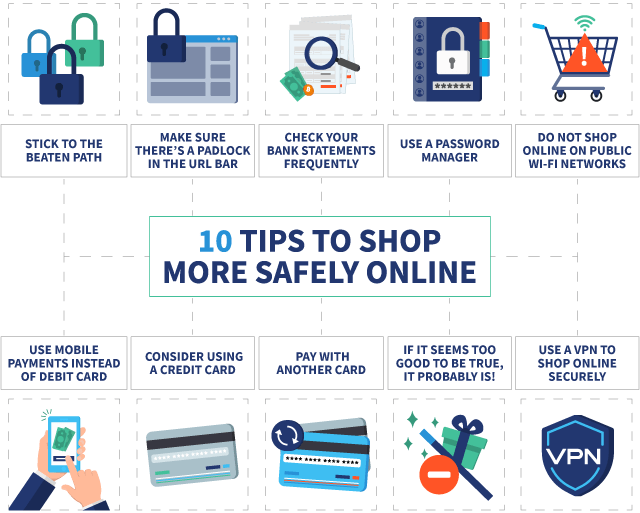Cybersecurity experts reveal top tips for safely shopping online

The busiest time of year for shopping is fast approaching and there are many deals to be had. However, it’s important to keep ourselves safe from hackers and scammers that target online shoppers.
Online safety expert Chris Bluvshtein at VPNOverview.com gives his top ten tips for keeping yourself safe while shopping online during the holidays.
Stick to websites you know
You might be tempted by a Google link promising an amazing deal but before you click, look at the name. If it’s not something you recognise, don’t go there. Hackers can use similar names to high-street brands to trick you into giving up your data so double check the site is the one you know. Google also tells you if you’ve visited the site before so it’s worth taking your time and checking for those details.
Check the URL bar
Every website should have a valid security certificate and you can tell by the little padlock icon next to the URL. If a website doesn’t have one of these then don’t give your bank details or valuable information.
Check your bank statements
You might not even be aware of your details being stolen until it’s too late, but by making it a habit to check your account and statements you’ll be able to catch any suspicious activity early on. Your bank will have information on any time limits they have for fraudulent purchases, so be sure to keep an eye on your statements.
Use a password manager
The safest thing you can do is use a unique, randomised password for all your accounts. But instead of writing those down on post-it notes or in notebooks, use a password manager to keep them all in one place. Password managers lock your information behind a master password and many of them autofill the website logins for you, keeping you safe from keylogger attacks.
Don’t shop on public Wi-Fi
You might be tempted to hop onto your favourite shopping site while having a coffee at your local cafe, but that public wi-fi connection is extremely dangerous to use. Public Wi-Fi rarely has safety protocols such as passwords in place and hackers can piggyback and steal unsecured banking details and sensitive information without you knowing.
Use mobile payments
Apps like Apple Pay and Google Pay can protect your banking details so if a website accepts them, it’s best to use them instead of your debit card.
Use a credit card
If something is high value, don’t use your debit card to pay for it. Consumer law in the UK means that you could get refunds or claim your money back if your card is stolen. Credit cards also have more protections than debit cards.
Set up a temporary bank account
By opening an online only bank account such as Revolut or Monzo, you can control the amount of money you have access to with transfers from your usual account. This way, even if your details are compromised, the hacker can’t do anything to your real bank account.
Use a VPN
A VPN protects your data from prying eyes. Everything you send is encrypted so even if a hacker can see you on a network, they won’t be able to access your sensitive information. VPNs connect you to a remote server and hide your IP, using one along with any of our other tips can make your online shopping super secure.
If it seems too good to be true, it probably is!
Be careful with any adverts for amazing deals. You might never get the item or there could be hidden dangers. This old saying still rings true with online shopping.






